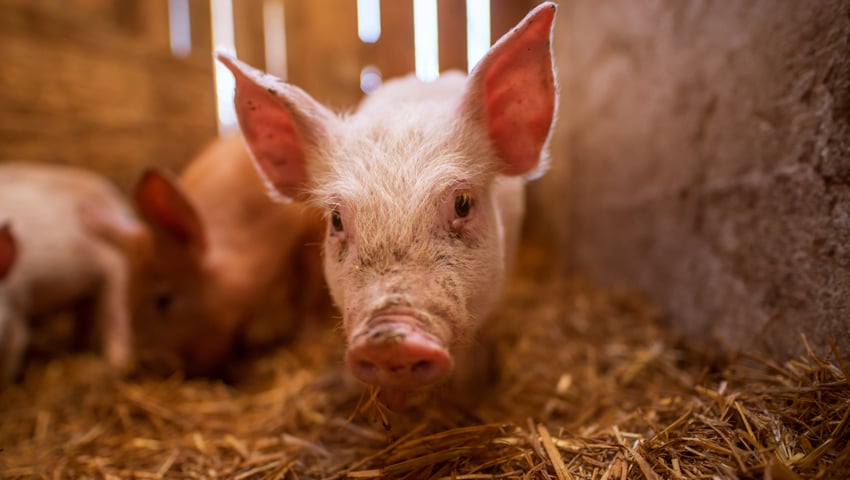In June this year, animal rights activists raised concerns about welfare standards on RSPCA Assured farms and called on the RSPCA to drop the Assured scheme.
RSPCA immediately launched its own investigation and commissioned an independent review of the scheme, undertaken by Crowe LLP, a leading forensic accountancy and auditing firm.
The Crowe Review was carried out over several months, and included conducting unannounced visits to more than 200 members of the scheme. It has now reported its findings and made recommendations.
RSPCA has said that it will fully implement the 20 detailed recommendations that the Crowe Report has made, to ensure RSPCA Assured remains transparent and robust and continues to fulfil its mission to improve the lives and welfare of farm animals.
In a statement, the RSPCA said, “We are reassured that this independent review by Crowe of 200 RSPCA Assured farms has found that the scheme is ‘operating effectively’ to assure animal welfare on member farms. We have now commissioned two independent reviews of the scheme in the space of four years, both of which show that RSPCA Assured is making a real difference to millions of farmed animals’ lives right now. This reflects our own data from visiting nearly 4,000 farms in the last year.
“This review provides us, our supporters and the public further confidence that RSPCA Assured is actively improving the lives of millions of farmed animals.
Chris Sherwood, Chief Executive of the RSPCA, said, “We want a world where RSPCA Assured is not needed, but right now it is the last line of defence for millions of exploited and vulnerable animals.”
The RSPCA statement said, “No one else is doing this work; we are the only organisation setting and regularly monitoring animal welfare standards on farms. Improving farmed animals welfare is hard, but RSPCA Assured has given us the experience and insight to influence government and the food and farming industry to drive critical changes to legislation and practice, as well as raising the bar for the whole farming industry.
“We have an ambitious modernisation programme for RSPCA Assured which is already underway. This includes significantly increased unannounced visits and further exploring the use of technology – such as body worn cameras and CCTV – to give comprehensive and real-time welfare insights.”
Emma Slawinski, Director of Policy, Prevention and Campaigns at RSPCA, said, “We will continue to campaign together with our colleagues in the sector for better legal protection, better enforcement of those protections, and a significant reduction in the number of animals farmed and animal products eaten. We will now continue to focus on our work to strengthen the RSPCA Assured scheme as well as campaign on broader issues around the experience of farmed animals, inspiring everyone to create a better world for every animal.”
Crowe Report recommendations
The RSPCA will be taking forward all 20 of the Crowe Report recommendations, which include:
- Significantly increasing the number of announced and unannounced visits to RSPCA Assured members
- Exploring the use of more technological aids, including additional CCTV and using body worn cameras to aid identification of issues and improved enforcement of standards
- Developing and applying a grading to all non-compliances identified to prioritise actions by members
- Defining more clearly risk tolerance and appetite positions regarding non-compliances and for these to be a critical factor in monitoring the Scheme going forwards and informing resourcing decisions
- Developing scoring and classification systems for non-compliances to help ensure structure in the responses to findings
- Developing an approach to identify potential concerns regarding farmer and stockkeeper welfare and investigate how this may impact upon animal welfare
- RSPCA Assured has also developed a Target Operating Model (TOM) as part of its improvement programme to modernise the scheme. This provides a framework for managing the scheme effectively and the scope of the TOM will be broadened to encompass governance and culture within the scheme
